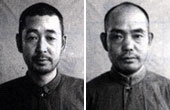Scale of Ebola crisis unprecedented
(Agencies) Updated: 2014-08-08 09:49
WASHINGTON -- The current Ebola crisis in West Africa is on pace to sicken more people than all other previous outbreaks of the disease combined, the health official leading the US response said Thursday.
The next few weeks will be critical, said Dr. Tom Frieden, director of the Centers for Disease Control and Prevention, which is sending more workers into the affected countries to help.
"It will be a long and hard fight," Frieden told a congressional committee Thursday.
In his prepared testimony, he estimated it would take at least three to six months to end the outbreak, under what he called a best-case scenario.
Frieden said the outbreak, which began in March, is unprecedented in part because it's in a region of Africa that never has dealt with Ebola before and has particularly weak health systems. He said the outbreak's two main drivers are lack of infection control as both health workers and families care for the sick and risky burial practices.
More than 1,700 people have been sickened in the current outbreak, in Guinea, Liberia, Sierra Leone and Nigeria. Nearly 1,000 have died, according to the World Health Organization, or WHO.
On Thursday Frieden said there's no way to know exactly how accurate that count is, or whether some cases are going unreported.
"The data coming out is kind of a fog-of-war situation," he said.
A medical charity told the House Foreign Affairs subcommittee that the world was too slow to react to the crisis, until recent headlines about two American aid workers who became infected in Liberia and were flown to the US for care.
"Ebola is out of control in West Africa, and we are starting to see panic now around the world," said Ken Isaacs, vice president at Samaritan's Purse.
The two American aid workers, who were flown to Emory University Hospital in Atlanta, "seem to get a little better every day," Isaacs said.
Frieden didn't rule out the possibility that a traveler could arrive in the US unknowingly infected with Ebola. But he said he is confident there will not be a large Ebola outbreak here. The CDC has put hospitals on alert for symptoms and to check whether people are recent travelers so that they can promptly isolate any suspected cases until proper testing can be done.
Frieden said it is possible to stop the outbreak in West Africa using tried-and-true public health measures: find and isolate all possible patients, track down everyone they could have exposed, educate the public about risks and ensure health workers follow proper infection control. The virus is spread through direct contact with the bodily fluids of someone who is sick.
Any case missed or exposed person lost to follow-up could keep the outbreak going.
"If you leave behind even a single burning ember, it's like a forest fire," he said. "It flares back up."
Isaacs of Samaritan's Purse said that a huge problem will be persuading African communities to abandon the traditional practice of washing the body and kissing the corpse immediately after death, when the body is most infectious. He said aid workers have been attacked when trying to intervene, and that some physicians in Liberia even mocked the existence of the Ebola virus, shunning protection around patients.
The State Department said Thursday night it was ordering all eligible family members of US personnel to leave the American Embassy in Monrovia, Liberia's capital, because of the Ebola outbreak. The department's medical office determined that there was a lack of options for routine health care services at major medical facilities due to the outbreak, a spokeswoman said.
Liberian President Ellen Johnson Sirleaf declared a national state of emergency this week, and officials said Thursday that no one with a fever would be allowed in or out of the country. In the capital, there were reports of bodies abandoned in the streets. Relatives have been hiding feverish patients at home for fear that if they are brought to isolation centers and don't have Ebola, they will catch it.
Troops were deployed there and in Sierra Leone to stem movement of possibly infected people. According to the WHO, Liberia and Sierra Leone account for more than 60 percent of the deaths so far.
On Thursday, Frieden said Guinea was furthest along in responding to the outbreak although it is still spread there.
The World Bank Group on Monday pledged as much as $200 million in emergency funding to fight the outbreak, including paying for urgently needed medical supplies, medical staff salaries and lab networks. On Thursday, the US Agency for International Development said it was sending tens of thousands of protective suits for health care workers.
At least one of the affected countries, Nigeria, has requested access to the experimental drug ZMapp, used on the two American aid workers. US health officials have stressed that only extremely limited doses exist, the drug hasn't ever been tested in people and there's no proof it helped the two Americans. They have said it would take several months to make enough even for a small study.
"The plain fact is that we don't know whether that treatment is helpful, harmful or doesn't have any impact," Frieden told the congressional subcommittee. He added, "I don't want any false hopes out there."
Related stories:
Nation to donate $4.9 million for Ebola assistance











